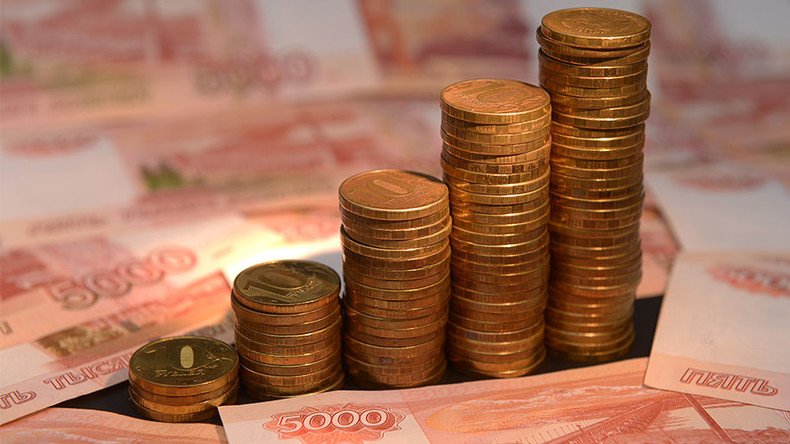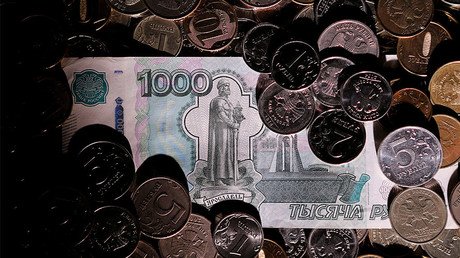Russian ruble proves irresistible to emerging market investors, continuing its meteoric rise

The ruble continues its seemingly unstoppable rally boosted by foreign investors seeking high yield returns. The currency has gained over 30 percent against the US dollar in just over a year.
On Thursday, the ruble rose 0.4 percent versus the greenback and was trading at 56.35 at 7:35am GMT, and gained 0.6 percent to 60.60 against the euro.
“There is a lot of currency sales from exporters, but there is practically no demand for foreign currency, neither from locals nor non-residents. It seems that only the finance ministry is still buying dollars,” said Mikhail Palei, chief dealer at VTB Capital, as quoted by Reuters.
At the same time, the ruble has become one of the most attractive currencies for global investors due to the highest interest rates among emerging markets. Experts at Societe Generale SA and Schroder Investment Management say Russia may be a wise choice for those who are looking where to invest.
“The ruble may now appear more attractive by comparison. Investors are hungrier than ever for yield,” said Phoenix Kalen, director of emerging market strategy at SocGen in London, as quoted by Bloomberg.
The analyst compares the Russian currency with South Africa's rand that has lost its strong lure for investors following the recent plunge caused by speculation Finance Minister Pravin Gordhan may be removed. The rand firmed 0.71 percent to 12.9600 against the dollar early on Thursday but still looks vulnerable.
#Ruble hits 1.5yr high against dollar on Trump's economic policy vacuum https://t.co/UAtqAmd95Hpic.twitter.com/Sp8ueX0QYG
— RT (@RT_com) 12 января 2017 г.
The experts say less competition from South Africa might give an extra boost to the ruble rally that has provided returns of up to eleven percent this year to carry traders that borrow dollars at a low interest rate to invest in an asset with higher rates.
READ MORE: Foreign investors continue bankrolling Russian ruble despite oil slide & key rate cut
The financial turmoil in South Africa is making Russian assets look relatively stable by contrast, according to James Barrineau, a money manager at British asset managing multinational Schroders.
“Russia is becoming a less volatile story. They’re embarking on a very prudent cutting cycle. They’re guiding market expectations very well, so it’s actually a pretty attractive story on that basis alone,” the analyst said.













